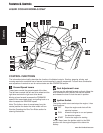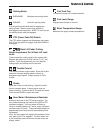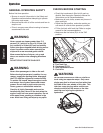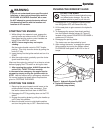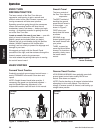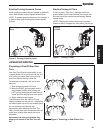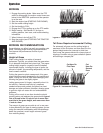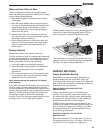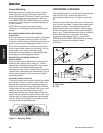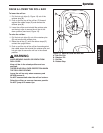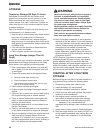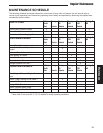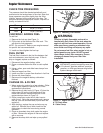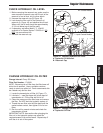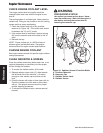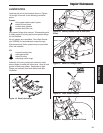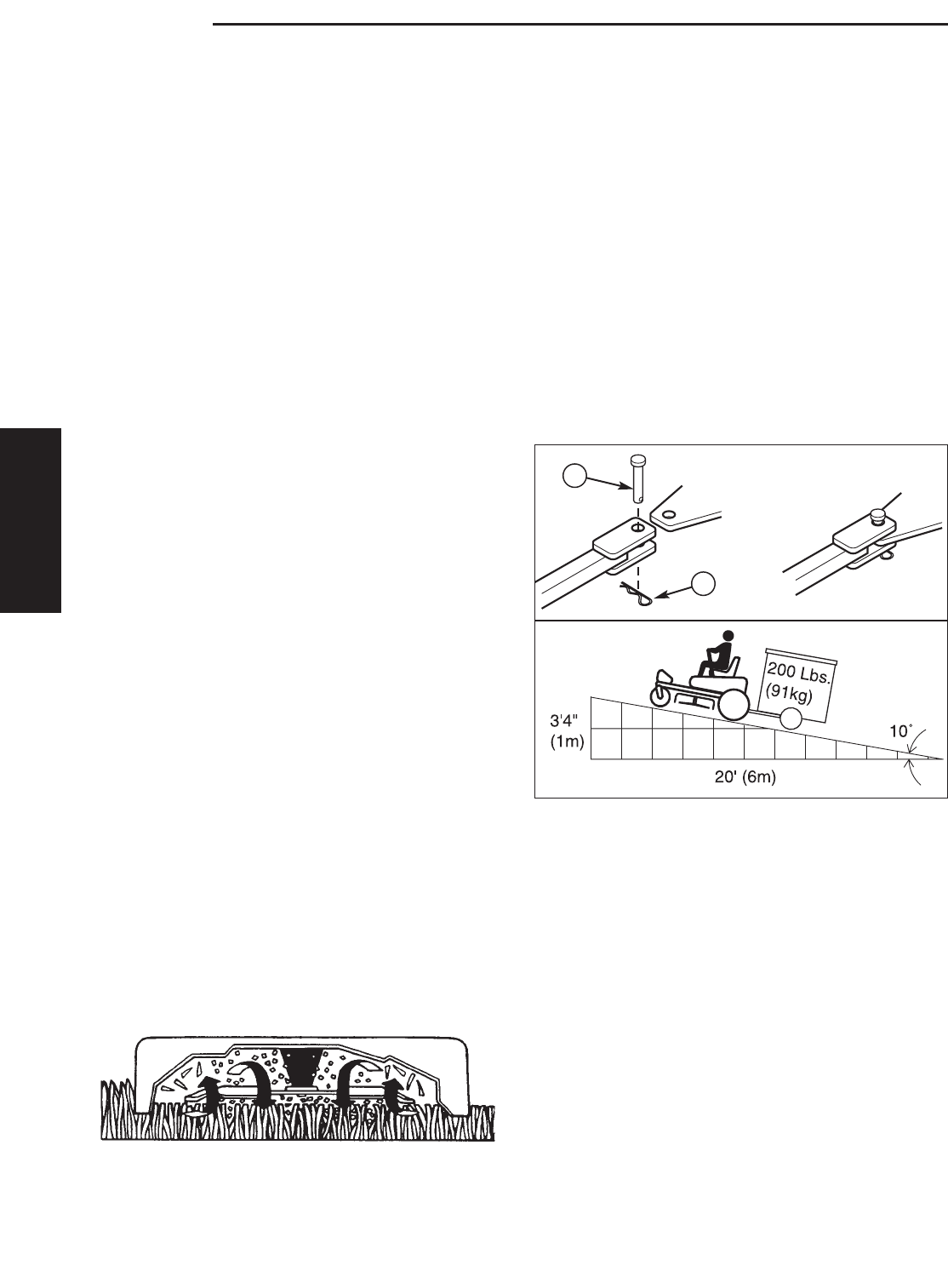
24
www.ferrisindustries.com
Operation
Proper Mulching
Mulching consists of a mower deck which cuts and
recuts clippings into tiny particles and which then
blows them down INTO the lawn. These tiny particles
decompose rapidly into by-products your lawn can
use. UNDER PROPER CONDITIONS, your mulching
mower will virtually eliminate noticeable clippings on
the lawn surface.
NOTE: When mulching under heavy cutting
conditions, a rumbling sound may be present and is
normal.
MULCHING REQUIRES EXCELLENT MOWING
CONDITIONS
Mulching mowers cannot function properly if the grass
is wet, or if the grass is simply to high to cut. Even
more than normal mowing, mulching requires that the
grass be dry and the the appropriate amount is cut.
Do not use the mower as a mulching mower during
the first two or three mowings in the spring. The long
grass blades, quick growth, and often wetter
conditions are more suitable for broadcasting (side-
discharging) or grass bagging operation.
ENGINE SPEED & GROUND SPEED FOR
BROADCASTING
Use full engine throttle matched with a slow ground
speed so that clippings will be finely cut. Ground
speed while mulching should be HALF of the speed
that would be used when broadcasting (side
discharging) under similar conditions. Since mulching
requires more horsepower than broadcasting, using a
slower ground speed is vitally important for proper
mulching operation.
HOW MUCH GRASS TO MULCH
The best mulching action typically results from cutting
only the top 1/2 inch to 3/4 inch of grass blade. This
provides short clippings which decompose properly
(much more quickly than longer clippings). The ideal
cutting height will vary with climate, time of year, and
quality of your lawn. We recommend that you
experiment with both the cutting height and ground
speed until you achieve the best cut. Start with a high
cutting height and using progressively lower settings
until you find a cutting height that is matched to your
mowing conditions and preferences.
Figure 11. Mulching Action
Figure 12. Trailer Weight Recommendations
A. Clevis Pin
B. Clip
A
B
ATTACHING A TRAILER
The maximum weight of a towed trailer should be less
than 200 lbs (91kg). Secure the trailer with a
appropriately sized clevis pin (A, Figure 12) and clip
(B).
Excessive towed loads can cause loss of traction and
loss of control on slopes. Reduce towed weight when
operating on slopes. The surface being driven on
greatly impacts traction and stability. Wet or slippery
surfaces can greatly reduce traction and the ability to
stop or turn. Carefully evaluate the surface conditions
before operating the unit and trailer, and never
operate on slopes greater than 10°. See SLOPE
OPERATION and TOWED EQUIPMENT in the safety
section of this manual for additional safety
information.
Operation



